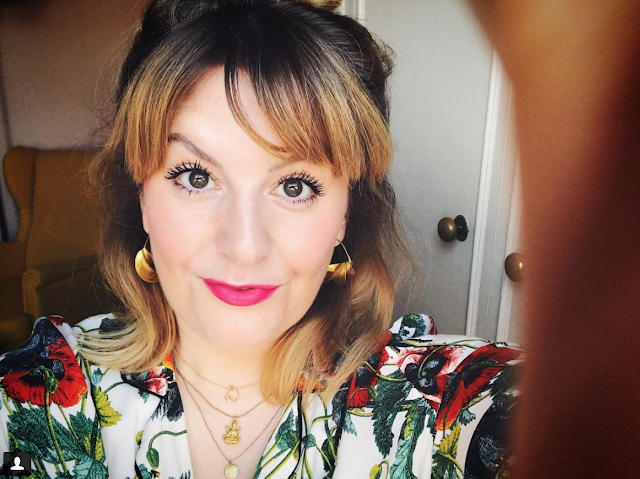Not really about her
Like Amy Schumer said, we used to have
Khloé. Khloé knew who she was, which is to say – Khloé was the one with the most
rounded personality. In a family famous for being famous, she wasn’t the “beautiful”
one. Kim was the stunning Playboy pin-up. Kourtney was the petite and natural
girl-next-door. Khloé had something the other two didn’t: she had balls. She
was funny. Where her sisters made headlines for what they wore or what they
did, Khloé seemed to get press for what she said.
I liked that. I could write a book on the value I think the Kardashians have for
their marketing-savvy, matriarchal, female-positive and only-deal-in-kind-words
way, but my starring role would’ve gone to Khloé. She made me feel good about
myself.
I’ve never been the hot one either, y’see. I’m
not the girl you approach at the bar, the one in the bandeau dress with the
waist-length hair. I was at a dinner party recently – Thanksgiving, actually.
It was thirty strangers brought together by an American friend visiting London,
and was the kind of dinner with an impressive postcode and hired staff on hand
to make sure the wine glasses are forever full. Every woman in that dining room
approached me over the course of the evening to tell me that my outfit was on
point – and it was. I felt like the best version of myself, with a red lip and
curled hair, a white button-up shirt and the nipped in waist of a quilted cream
prom skirt. I wore my new vintage dress coat, too, so looked vaguely equestrian
and incredibly put together. I made new friends, supping wine on the balcony
and sharing cigarettes. I was interested and interesting, asking questions and
telling jokes. I had a genuinely lovely time. I felt like the kind of guest one
should strive to be at somebody else’s dinner.
Dinner was assigned seating, indicated by
name tags on the back of the chairs. As 8 p.m. was announced, we walked the
perimeter of the long table, and I found my name in between two strapping
semi-professional New Zealand rugby players. I clocked them half a second
before they realised it was I to sit between them, and that half a second was
just long enough to register their disappointment when it came. I ate my
consommé as they flirted with the Swedish girl in the red Hervé Léger opposite,
largely ignoring me, making chit-chat with the older woman across the table,
instead. I wasn’t upset. It was simply another example of… something.
Khloé was my homegirl for so very long –
the one I thought of as just like me. The one who’d also end up talking to the
fascinating women at the dinner, not the beefcake boys. She was the mate who
knew how to have a good time, but also made sure we worked out and did weekly
intensive conditioning treatments. With Khloé, doing my best with what I’ve got
was enough because she was fighting the same battle. Because, isn’t that what
any of us are chasing? Wanting to feel enough? To know we’re not as bad as we
feared? To find value in who we are, not what we look like?
Lately, I slipped into not feeling enough.
On my book deadline I lived in yoga pants and ate biscuits as I typed twelve
hours a day. My hair is a mess, my skin dull, my waistline considerably larger
than it was. Re-entering the real world, blinking in the bright light of a new year, I wore my slovenliness on
my face. So I turned to my friend – the one with the great advice and hearty
reassurance. But. The Khloé I knew wasn’t there.
I’m not belittling or criticizing anybody
for taking pride in how they look, or losing weight, or colouring their hair
and any of that stuff. I do it all, too. But suddenly it hit me: believing that
Khloé was just like me was my first mistake, because any celebrity with that
kind of money, that kind of grooming, that kind of lifestyle, is not at all
like me. There’s a level of time and money anyone in the public eye dedicates
to their appearance, and I will always come off poorly when I think I’m one of
them (or, more accurately, that they’re one of us) because I don’t have a chef,
or trainer, or driver or paycheck into the millions. So I unfollowed her. I
unfollowed most celebs across all my social platforms because it enters me into
a competition I do not want to be part of, but one I’ve been in without
realising it for ages.
I don’t want #hairgoals. I want
#braingoals. Superwomen, not supermodels. It isn’t news that the women in the
magazines aren’t like us, and yet – why does this feel so bold? Why does it
feel so empowering to have closed the social media door on women who, despite
the kick-ass things they say, still make me feel like a troll for not looking
like they do?


Comments
Post a Comment